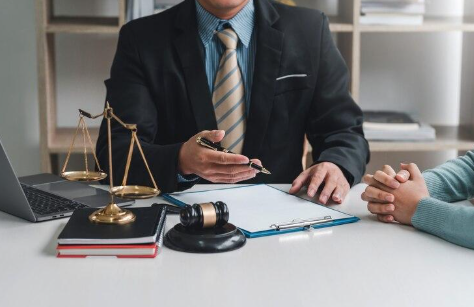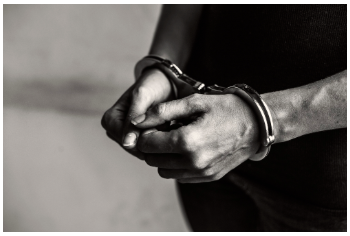Last Updated: 6, November 2025
Facing a charge or investigation is overwhelming. The right defense lawyer helps you make smart moves early protecting your rights at arrest, bail, arraignment, pre-trial, trial, and any appeal. This guide explains what criminal defense lawyers do, how fees usually work, and the exact questions to ask during a first consult.
How Can a Criminal Defense Lawyer Help You?
You may face charges that seem overwhelming. A defense lawyer fights to protect you. You should expect legal protection at every stage of the case. That includes investigation, arrest, arraignment, trial, and appeal.
A defense lawyer works to:
- Investigate your case facts
- File motions to suppress illegal evidence
- Negotiate plea agreements
- Represent you at hearings and trials
- Ensure the prosecution follows the Constitution
You should ask about their experience in court. Trial strategy matters more when the stakes are high.
What Rights Does a Criminal Defense Lawyer Protect?
You have rights under the U.S. Constitution. Those rights must stay protected throughout the case. Your lawyer ensures no violation occurs.
You should expect them to monitor:
- Fourth Amendment search and seizure techniques
- The Fifth Amendment’s guarantee of silence
- Sixth Amendment rights to counsel and a fair trial
- Equal rights as guaranteed by the Fourteenth Amendment
According to a 2023 ABA report, police excess occurred in 22% of criminal prosecutions. Your lawyer may find errors that lead to dismissal.
What Is the First Step in a Criminal Case?
You may get arrested or receive a summons. Your lawyer should act fast. The first step includes bail hearings and an initial investigation. It is essential to know that your attorney files motions early. Those may stop the case before trial. Motions may include:
- Motion to suppress evidence
- Motion to dismiss
- Motion for discovery
Your defense begins immediately. Delays hurt your chances. A 2022 Federal Sentencing Commission report found that early intervention can reduce prison time by up to 30%.
What Does a Defense Lawyer Do Daily?
You should expect daily work that supports your defense. That includes court filings, client meetings, and evidence review. Every task leads to a larger trial strategy. Daily responsibilities include:
- Research case law
- Draft court motions
- Review police reports
- Visit the crime scene
- Interview witnesses
- Cross-check evidence
You may not see all the work that has been done. Most defense happens outside the courtroom. A 2024 survey by NCDD found that 61% of defense time is spent on preparation, rather than trial.
Why Does Evidence Analysis Matter?
It is essential to understand that evidence significantly influences your case outcome. Your lawyer should check for errors, tampering, or missing data. That includes both physical and digital evidence. Your defense may rely on:
- Body cam footage
- Phone records
- DNA samples
- Surveillance data
- Eyewitness reports
In 2025, most criminal trials include digital evidence. A Georgetown Law study found that over 70% of criminal cases now involve digital sources, such as location history or social media posts. Your lawyer must understand how to challenge that data.
What Happens Behind the Scenes?
You may only see the courtroom parts. Most defense work remains hidden from public view. Behind-the-scenes tasks include legal writing, document prep, and strategic planning. You should expect your attorney to:
- Analyze forensic data
- File motions under strict deadlines
- Consult expert witnesses
- Craft opening and closing arguments
- Develop jury selection criteria
Trial success depends on preparation. You should ask about the lawyer’s past wins and how they prepared those cases.
How Does a Defense Lawyer Use Experts?
You may need testimony from independent specialists. Your lawyer selects experts based on your case type. Each expert adds credibility and facts that the jury understands. Common expert types include:
- Psychologists
- Digital forensics analysts
- DNA technicians
- Ballistics examiners
- Medical specialists
You should ask if the lawyer has access to top-tier experts. A 2023 study by NYU Law showed that the use of expert witnesses increased acquittal rates by 27% in complex felony trials.
Must Read: Who is a Military Defense Attorney and What Do They Do?
How Has Technology Changed Criminal Defense?
You should know that defense work in 2025 looks different from what it has in past years. Technology plays a key role in both evidence and legal research. Your lawyer may use:
- AI case search software
- Cloud-based case files
- Digital case management tools
- Facial recognition challenges
- Social media metadata analysis
It is essential to be aware that new laws govern digital privacy. That affects what evidence can be used in court. You should hire a lawyer familiar with current tech laws.
How Should You Choose the Right Criminal Defense Lawyer?
You may feel unsure about which lawyer to hire. You should focus on experience, track record, and legal knowledge. Ask questions during the first consultation.
You should consider:
- Past Experience in similar charges
- Number of trials won
- Reviews and referrals
- Communication style and availability
- Courtroom confidence
You should avoid attorneys who avoid trials. Many only seek plea deals. You deserve someone ready to defend you fully.
What Questions Should You Ask a Criminal Lawyer?
You should not hire a lawyer without a clear understanding. Ask direct questions that reveal their competence and style. You can ask:
- How many jury trials have you won?
- How often do you negotiate pleas?
- Have you handled digital evidence cases?
- What outcomes are realistic for my charge in this court?
- What exact work will you do in the first 30 days?
- If we go to trial, how does the fee change?
- What experts or investigators might be needed, and who pays?
- How will you keep me updated?
It is your right to understand what the lawyer can offer. Do not hesitate to walk away if you feel uncertain.
How Much Does a Criminal Defense Lawyer Cost?
You should expect to incur legal defense costs. Fees vary by location, charge, and case length.
Most lawyers use these structures:
- Flat fee for minor charges
- Hourly rate for felonies
- Retainer upfront, then bill per hour
- Payment plans in some cases
You should expect to pay:
- $1,000–$5,000 for misdemeanors
- $10,000–$25,000 for felonies
- Over $50,000 for complex trials or federal charges
Public defenders are often overburdened, handling more than 100 cases. You should hire private counsel if the charge is serious.
What Happens If You Cannot Afford a Lawyer?
The U.S. Constitution gives you the right to a public defender. Judges assign one if you qualify based on income. You should understand that public defenders work hard but face limits.
You may not get much time with them. They often handle 5 to 10 cases per day. A 2024 report by the National Legal Aid & Defender Association showed 73% of public defenders exceeded caseload limits. That may affect your case result.
What Are Common Criminal Charges a Lawyer Handles?
You should be aware that defense lawyers handle a wide range of charges. Their skill set applies to both minor and serious allegations. Typical case types include:
- DUI and DWI charges
- Drug possession and trafficking
- Assault and battery
- Domestic violence
- Theft and burglary
- Homicide and manslaughter
- Sex offenses
- White-collar crimes
You should find a lawyer who specializes in your case type. Experience in similar trials improves outcomes.
What Can You Expect During the Trial?
You may worry about the trial. Your lawyer prepares you. They guide you through every step and explain court procedures. Trial steps usually include:
- Jury selection
- Opening statements
- Witness testimony
- Cross-examination
- Closing arguments
- Jury instructions
- Verdict
You should ask how your lawyer handles cross-examination. A potent cross can change the jury’s mind.
What If You Want to Appeal?
You may feel the trial went unfairly. You can file an appeal. Your lawyer must find legal errors that harmed your case. Appeals often focus on:
- Improper jury instructions
- Evidence admitted wrongly
- Prosecutorial misconduct
- Ineffective counsel
- Judicial bias
You must act fast. Deadlines matter in appeals. You should ask about appeal timelines and success rates. Public defenders are real lawyers. If you qualify, a PD can provide strong representation, though many offices face heavy caseloads. (BJS estimated 73% of county-based and 79% of state-based defender offices exceeded old caseload guidelines in 2007; newer studies argue today’s reasonable workloads should be even lower.)
FAQs
Do I need a lawyer if I plan to plead guilty?
Usually yes. A lawyer can negotiate charges and sentencing exposure, protect immigration/employment rights, and fix paperwork mistakes that can hurt you later.
How fast should I hire a lawyer?
As early as possible. Early advice affects bail, statements, preservation of evidence (including digital sources), and plea posture. (Defense standards emphasize the breadth of counsel’s role from the very start.)
What will it cost?
It depends on the charge, court, and lawyer’s experience. Expect flat fees for many misdemeanors, and retainer + hourly for complex felonies; get the scope and what’s included in writing and ask how advance fees are handled ethically. American Bar Association+1
Is digital evidence really common?
Yes—many modern prosecutions involve phones, location/history, social media, or cloud data; one research estimate says digital evidence is a factor in about 90% of cases. Treat texts, DMs, and cloud backups as potential evidence, and don’t delete anything.
Will a public defender help?
Yes. If you qualify, you’ll get a licensed criminal defense attorney. Availability and workloads vary by jurisdiction; ask the court how to apply.
Conclusion: Why Should You Hire a Criminal Defense Lawyer?
You may feel scared or confused after an arrest. You need someone who understands the system and fights for your rights. A criminal defense lawyer gives you that support. You should hire one early. Delay puts your freedom at risk. Ask smart questions. Pick someone with experience and courage. You deserve a fair trial and a strong legal protection. A criminal defense lawyer helps you get both.
Disclaimer: This article provides a general overview of the criminal defence lawyer, based on publicly available information, and is intended for informational purposes only. It does not constitute legal advice.
Musarat Bano is a content writer for JudicialOcean.com who covers lawsuits, legal news, and general legal topics. Her work focuses on research-based, informational content developed from publicly available sources and is intended to support public awareness. She does not provide legal advice or professional legal services.



